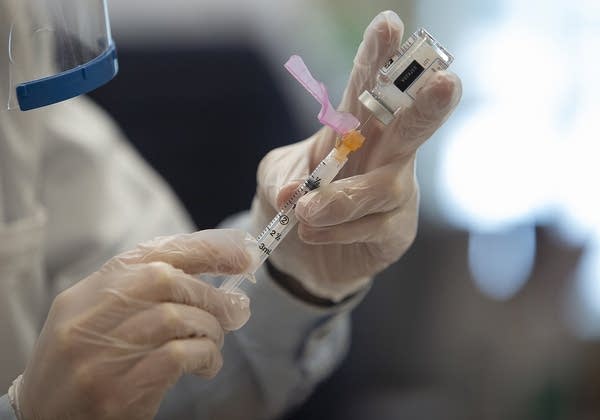Why is the coronavirus vaccine rollout going slowly?

Go Deeper.
Create an account or log in to save stories.
Like this?
Thanks for liking this story! We have added it to a list of your favorite stories.
The biggest vaccination effort in history is underway.
A month after the first coronavirus vaccine was approved for emergency use, millions of people working in health care or living in nursing homes have received the first of two required shots.
But, the number of vaccinations has fallen short of government projections, prompting criticism and calls to speed up the process to save lives. Less than a third of vaccines shipped to states have been given out. Disorganization led to scenes like ones in Florida, where seniors waited in lines overnight for a chance at a shot.
Why has the vaccine rollout gotten off to a slow start? Were exhausted and underfunded health departments prepared to launch a mass vaccination effort?
Turn Up Your Support
MPR News helps you turn down the noise and build shared understanding. Turn up your support for this public resource and keep trusted journalism accessible to all.
Every Monday, MPR Host Kerri Miller talks about pandemic science and policy. This week, she talked to two public health experts and took listener calls about the bumpy vaccination rollout and what can be done to ensure the next phase of vaccinations to the broader public will go more smoothly.
Guests:
Jason L Schwartz is an assistant professor of health policy at Yale School of Public Health.
Lina Tucker Reinders is the executive director of Iowa Public Health Association.
To listen to the full conversation you can use the audio player above.
Subscribe to the MPR News with Kerri Miller podcast on: Apple Podcasts, Google Podcasts, Spotify or RSS


